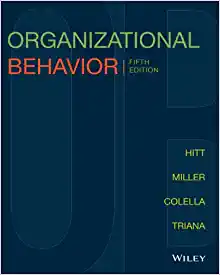Heroes, heroines and role models are people who become known for their special achievements, courageous acts, or
Question:
Heroes, heroines and role models are people who become known for their special achievements, courageous acts, or nobility of purpose. Learners may hone in on the ethics of intelligence, attitudes, and emotions by considering their own heroes, heroines, and role models. What qualities in such persons do they tend to most admire and wish to emulate? They may also gain insight into the prevailing nature of managerial ethics of an organization by taking note of those identified in the culture as “heroes,” or those individuals to emulate. Is the “take no prisoners” salesperson a local hero in the sales organization they may join one day?
Here is an original exercise entitled, “Telling Heroes and Heroines,” which may be used to stir learner imaginations about this material.
Questions:
1. It is safe to assume that today’s collegiate learners have viewed an enormous amount of movies and television programs. The main task in this exercise is for learners to create two lists of heroes who come easily to mind when asked to reflect on their entertainment histories.
2. One list is of 3 – 5 movie and/or television heroes and heroines with whom they most closely identify, jotting down a note on each about the most admirable quality or trait.
3. The other list is of 3 – 5 movie and/or television stories in which organizations play a lead role, for example Law and Order (NBC), Prime Suspect (PBS), Lost (ABC), or The Wire (HBO). Specifically, the list should name (or approximate the name, if memory does not serve well in the moment) someone who serves as a role model to them in that organization.
4. These lists can be made on the spot, at the start of this exercise, or assigned in advance to conserve time for interaction.
5. Ask learners to print the name of each of the five heroes and heroines from each list on separate flash cards or sheets of paper. There would be a set of five for Personal Heroes and Heroines and a set of five for Organization Heroes and their identifying organizations.
6. Form groups of 4 or 5.
7. Instruct the groups to take turns having each member reveal a Personal Hero and make a brief statement of why this person stands out in memory. Members may make comments and ask questions before moving to the next person, then the next. There should be three rounds of this turn-taking activity. Then, the group is asked to address this general question: Is there a pattern in our choices of personal heroes, heroines, and role models that tells us something about our own values and attitudes toward people? What might they do with this knowledge?
8. Next, instruct the groups to take turns revealing and discussing their Organization Heroes, Heroines, and role models. Then, ask the groups to address this general question: What do organizational heroes and heroines tell us about the sort of people most likely to get ahead in those cultures? What might they do with this knowledge?
Step by Step Answer:






